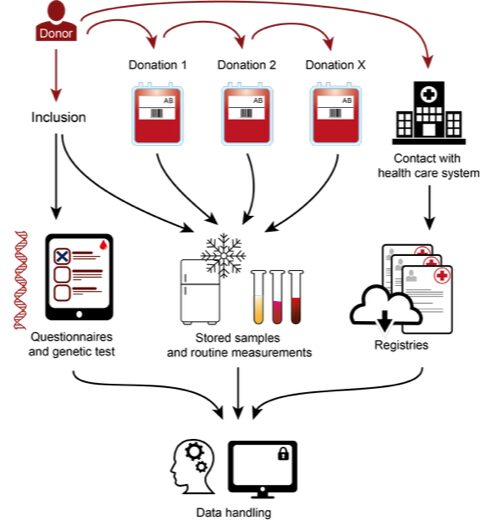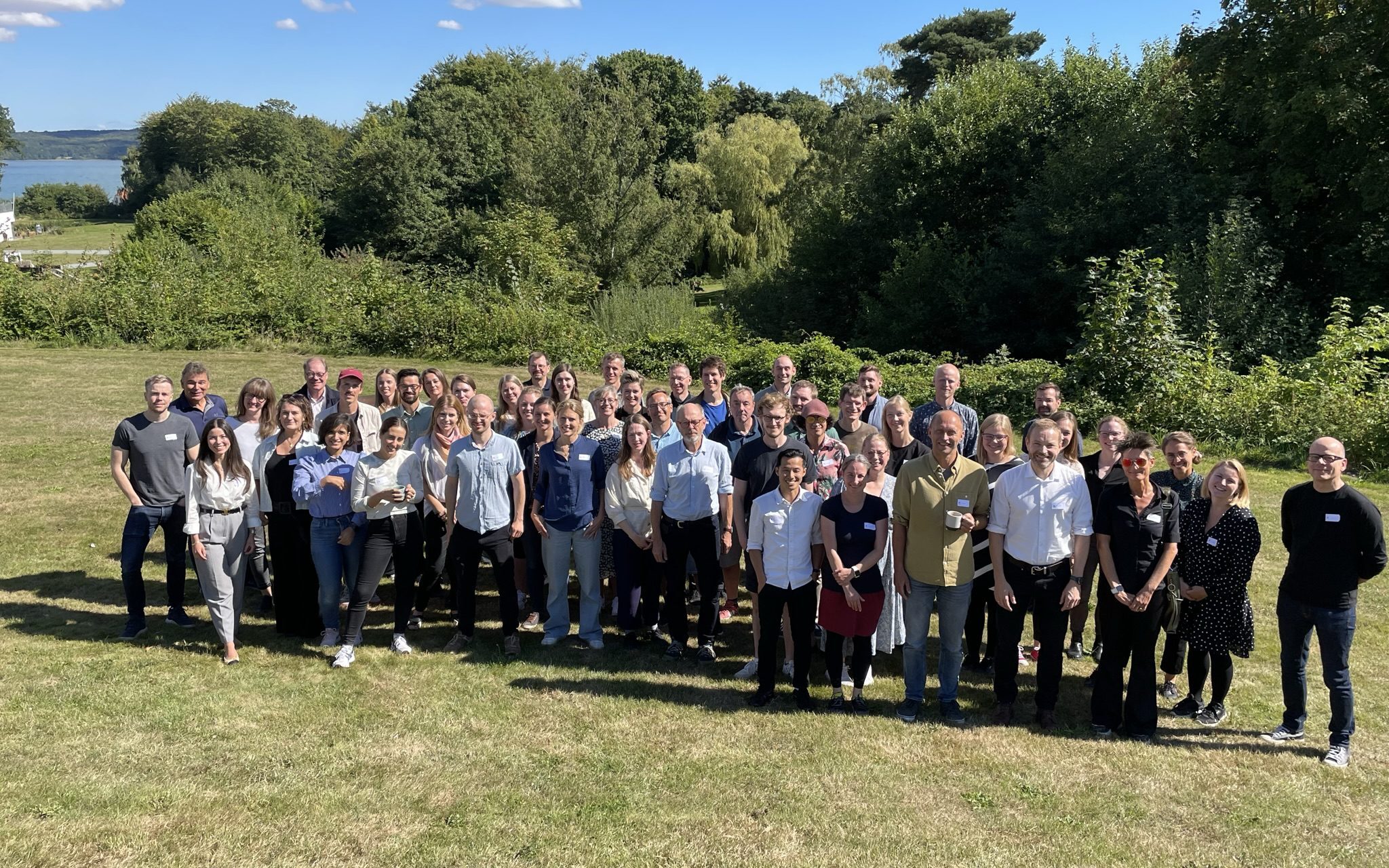The Danish Blood Donor Study – One of the largest biobanks in the world
The Danish Blood Donor Study (DBDS), initiated in 2010, is an ongoing nationwide cohort study and biobank that uses the infrastructure of Danish blood banks to conduct health research benefiting both blood donors and the general population.
The cohort includes blood donors who, upon joining, complete an initial questionnaire with follow-up questionnaires administered every two years. These questionnaires capture longitudinal information on lifestyle, anthropometric measures, and self-perceived psychological and somatic health, with particular emphasis on health-related phenotypes and detailed symptomatology not recorded in national registries.
The biobank stores whole blood and plasma samples from participants at inclusion, along with their historical and future plasma samples from blood donations. Currently, the cohort encompasses more than 165,000 individuals from whom nearly three million samples, averaging 17 samples per individual, have been stored. Participants consent to individual-level data retrieval from Danish national registers with the option to opt-out at any time.
What makes DBDS a unique research resource:
- Exceptional participation rate: 96% of invited blood donors join the study
- Comprehensive data collection combining:
- Genotypes and biomarker data
- Lifetime medical records from national registersSociodemographic and economic information
- Longitudinal self-reported health and lifestyle data
- Research opportunities spanning:
- Early diagnostic marker identification
- Disease trajectories and prevention
- Genetic and environmental disease factors
- Emerging infection surveillance
- Personalized medicine, including recall studies based on genotype or phenotype
The study maintains extensive genotype and biomarker data, including genotypes on approximately 135,000 individuals, along with various specialized measurements on smaller subgroups such as iron markers, plasma inflammation and vascular biomarkers, plasma C-reactive protein, suPAR, inflammatory biomarkers and cytokine auto antibodies.
Our self-reported information covers a wide range of validated scales measuring phenotypes related to both mental and physical health, collected through ten surveys sent out since 2010, with each answered by 53,000 to 92,000 individuals (For specific self-report data available see below).
Collaborations and contact
The DBDS infrastructure provides an internationally unique and highly professional research platform that is open to researchers wishing to pursue advanced studies of disease development. DBDS is a part of the Bio- and Genome Bank Denmark (RBGB) as the Danish Blood Biobank (DBB). As a part of RBGB, there is an established application process, which allows external researchers from public institutions and small and medium sized companies to get access to the DBDS biobank material.
If you wish to collaborate with us/the DBDS or get further information – please contact us via [email protected].

The figure shows the workflow that is initiated when a donor is included in DBDS, from the paper: “Cohort Profile: The Danish Blood Donor Study” (Cohort paper).
